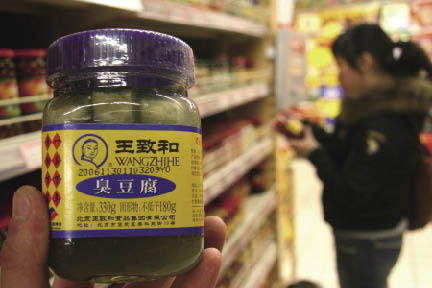|
Culture Shocks
"Communication with the German lawyer was kind of difficult," Wang Jiahuai recalled. It wasn't easy to make German lawyers and judges understand the influence of this brand in China. "So I told the lawyer Wangzhihe is the Mercedes and BMW of Chinese dining tables."
|
 |
|
Worth RMB 729 million in 2008, Wangzhihe Products are a precious lifeline for Chinese consumers. |
Despite the obvious differences in ideology and culture, Wang Jiahuai believed, "There was no impassable gulf of communication based on the rules of the corporate game" where denunciations of infringements and illegal activities were concerned.
As for Okai's claim that the Wangzhihe logo was simply a common image of ancient Chinese soldiers, Wangzhihe needed to prove this was absurd. "We found samples of ancient soldiers' clothing, plaits and hats and made a comparison with the logo," explained Wang. "The hat in the logo was definitely used by scholars in ancient China."
Things that are common knowledge in China needed to be explained in detail in a trans-national context. "It was helpful for them to know and understand Chinese culture," said Wang.
Wolfgang Festl-Wietek, the German lawyer, expressed his respect to the company for using the law to retrieve their trademark.
A Long Way to Go
Just before World Intellectual Property Day on April 26, the State Administration for Industry and Commerce published data showing that more than 2,000 Chinese trademarks have been preemptively registered in foreign countries since the 1980s. Cases included the Tong Ren Tang Pharmacy and Goubuli stuffed-buns, resulting in losses of up to RMB 1 billion annually.
"Chinese enterprises don't have a clear understanding of intellectual property when entering overseas markets," cautioned Wang Jiahuai. In 2008 alone, foreign companies applied for 17,000 trademarks in China through the Madrid Agreement for International Registration of Trade Marks, compared to only 2,000 Chinese applications abroad.
As a time-honored company, Wangzhihe has registered in over 40 countries and regions, and sells products in over 20. Attaching unprecedented importance to overseas markets, the company set up a special department to handle international trade affairs. "With a history of more than 340 years, we think it's important to protect our legacy."
Wangzhihe produces only traditional foods, but Wang Jiahuai is confident of a good overseas performance. "In this industry, good performance is not decided by track record. As long as humans exist, the food industry will develop." He plans for his company to dominate overseas Chinese communities and then move into mainstream overseas societies.
While making inroads into foreign markets, Wang has faced and overcome many problems. Concerning intellectual property and trade friction, he believes, "The only way is to play by the rules."
"Within three decades China has completed a process of development that advanced countries paced in half a century or more. Industrialization is, for any country, a process that begins by importing, digesting, then absorbing, and finally reinventing. Intellectual property, as a common treasure of human beings, should be accessible to all for transnational communication and exchanges," Wang says. "But communication should be under rules and laws. Abiding by the rules is an essential precondition." Therefore, he thinks Chinese enterprises "can't increase the friction out of ignorance of the rules," since this "damages the image of the nation as well as taints its companies."
Wang believes China has special advantages in the trade of seasonings. "Traditional brands dominate this trade, so our country has solid intellectual property rights and a firm grasp on core technologies. This provides our edge in foreign markets."
"After we won the case," comments Wang Jiahuai, "Baijia filed a lawsuit against Okai in May and retained the same lawyer, Wang Hongqing. If Baijia takes back its trademark smoothly, other infringed companies will move swiftly to do the same."
Wang sums up his stance: "We have taken the first step. More companies are expected to follow." Media coverage will also inspire more and more enterprises to think seriously about protecting their intellectual property.
| 